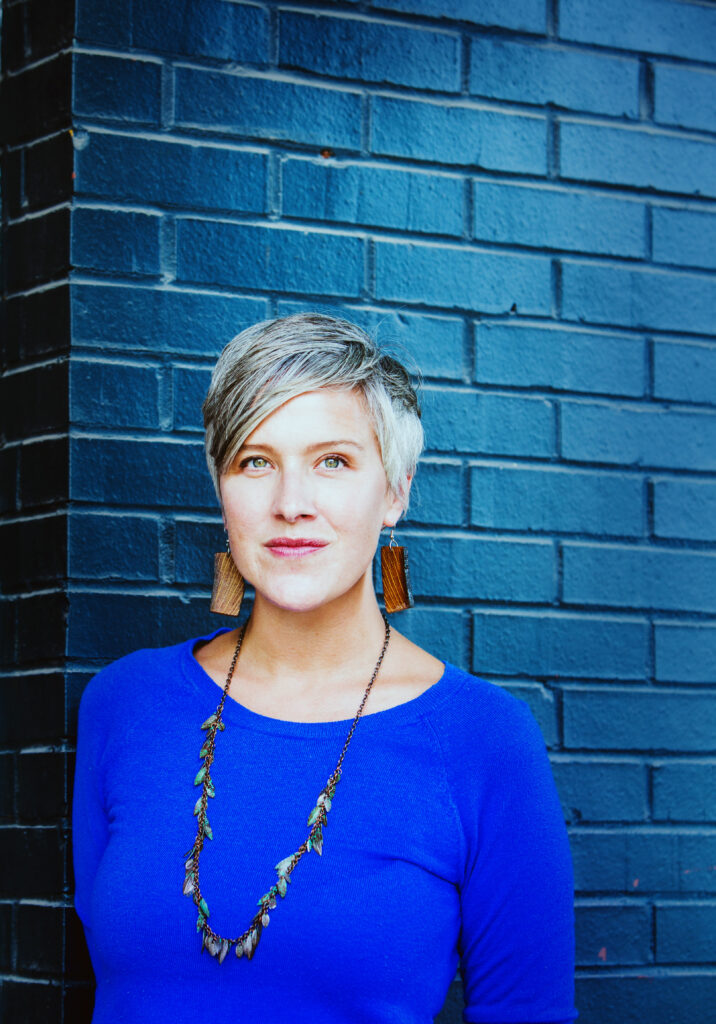This following poem is from a manuscript-in-progress, more alphabet, which extends the work of Danish poet Inger Christensen’s Alfabet (1981), translated into English by Susanna Nied (alphabet, 2001). A book of intersecting forms, Alfabet is an abecedarian long poem that uses the Fibonacci sequence, one of the so-called languages of nature, to determine line count from section to section. This lends itself to a spiraling and expansive poetics. The intersection of linguistic and mathematical systems allows Christensen to question the limits of sense-making and to engage the senselessness of war and planetary destruction.
Christensen’s Alfabet ends on section “[n],” fittingly perhaps, given that “n” is the first letter for “noun” and for “number”—in both English and Danish—and is used as a variable in equations and mathematical expressions. In adherence to the Fibonacci sequence, in which each number is the sum of the two previous numbers (1, 1, 2, 3, 5, 8, 13, 21, 34, and so on), “[n]” should have consisted of 610 lines. Instead, it consists of 321 lines. We might read this as a countdown (“three, two, one”) to liftoff or explosion, to the start of a race or the end of a world.
In the excerpt below, I pick up at “[o],” which consists, in its entirety, of 987 lines. I am now working on “[p],” which will be 1,597 lines.
with their diverse pollination strategies,
with the mosquito-need of some that
revises the mosquito in one’s mind,
on one’s skin, so often thought intol-
erable, orchids exist, miniature orchids
one needs a magnifying glass to observe;
wild orchids exist, risk vanishing as
the insects that sex them vanish, but
before they vanish, one evening, we
order chiliguaro and offer our takes
on whether eating ceviche on a boat
after delighting in swimming along-
side fish, alongside filter-feeding whale
sharks with inscrutable teeth, is obscene;
with its antioxidants and the joyful
mountain cemented in its name,
oregano exists; oregano exists
at the intersection of the culinary
and the medicinal, in fields, sunny,
conceptual, in areas where one might
expect opportunism, the monetizing
of wellness, the telling rhyme of health
with wealth, the potency of access;
the length of lasting, the outage exists,
with its estimated time of restoration,
the outage and the update, the hour
later, the hour again delayed; the oracle
high on methane had existed, high
high priestesses, thick with utterances,
tongue a churn in the mouth, the future
a butter spread on the bread of conscious-
ness, the words eaten up, but the message
undigested; in a notebook, a record of or-
dinates, tattooed on a bicep, on an inner
wrist, the body a placeholder, a placemat
for the cracked plate of memory, the wrong
knife for managing tenderness; the con-
trasting plumage and onomatopoetic name
of orioles; orioles, the sight of which was
once thought to cure jaundice, exist inside
and outside of song, their song, this song;
their, our—such distinctions exist; ostracism,
akin to the loss of bone mass, but, that here, bone
is thought to not be weakened by what’s gone;
ox-eye daisies and osteoporosis, the celestial
equator’s belt, ox-eye daisies and the obstruction
of stars, the star-loss of constellations, night’s
thinning; never the outcry so cried out, dried
up; to dehydrate to outsmart rot; to swing for
the outfield’s gap, to find a way home; all that is
over that continues to exist: the overcharge,
the overextension, the overstock and oversatu-
ration; within the egg of the oviparous animal,
the nourishing yolk, within the amniotic sac,
the buoyancy-enabling pee one makes oneself;
one makes oneself exist; the good egg’s good job;
with shifts in ocean temperature and
seawater chemistry, existing ocean climates
are vanishing, but before they vanish, one
evening, we peel skins from flash-boiled then
ice-shocked tomatoes that we then core and
crush and can, the putting to death of micro-
organisms, the strategic use of heat, one’s sub-
sistence a challenge to another’s existence; one
of us opens the Opinel and severs the stringless
string beans, keeping them separate from the
string beans with strings; resourcefulness exists, re-
use, the original label for Ocean View Brand Refugee
Wax Beans crossed out and printed over with
“Emergency Label Early June Peas,” now an objet
d’art; the upside-down strawflower omitting its mois-
ture for the woody yawn of the wreath, on occasion,
multi-headed, a golden Cerberus one retrieves near
the gates; the dupe of the pink and white Orchid
Mantis should not be judged; neither the officiant
referencing the script; think like an occupation,
to be that which earns a living; think like an off-
season and quiet down; think like the varnish
restoring the oil painting’s vibrancy, a consol-
idant that prevents further deterioration; the
narrow want to be omnivorous, the onerous,
newly light; with advancements in minimally
invasive techniques, open heart surgery is
being bypassed when it can, but for now,
while one lies open, while some contemplate
the work of vessels, repair depends on disruption;
the clementine’s opening reveals the coral-shaped
pith, albedo harbored in the core, the vanishing reef
displaced by mimicry; as an orange hue, coral will keep

Kristi Maxwell is the author of nine books of poems, including Wide Ass of Night (Saturnalia Books, 2025); Goners (Green Linden Press, 2023), winner of the Wishing Jewel Prize; Realm Sixty-four, editor’s choice for the Sawtooth Poetry Prize and finalist for the National Poetry Series; and Hush Sessions, editor’s choice for the Saturnalia Books Poetry Prize. She’s the Director of Creative Writing and Professor of English at the University of Louisville.
The image that precedes the poem is of a sculpture by Kaare Golles, installed in Copenhagen in 2021, to honor Inger Christensen (1935-2008).
![Monument for Inger Christensen. Photo by David Stjernholm. Featured image for [o] by Kristi Maxwell.](https://atlengthmag.com/wp-content/uploads/2025/06/Monument-for-Inger-Christensen_Kaare-Golles_002_Photo-by-David-Stjernholm-1280x914-1.jpg)


